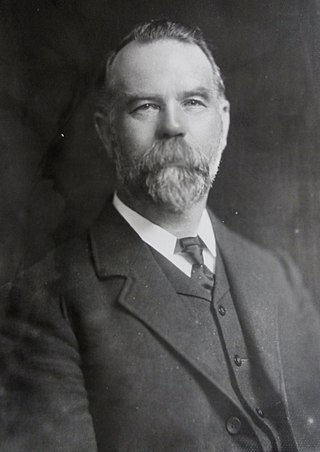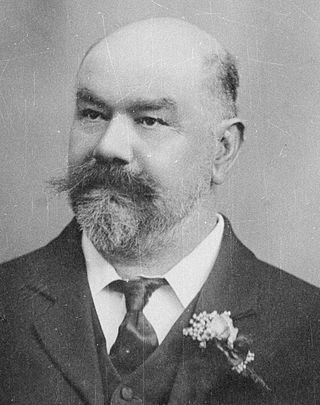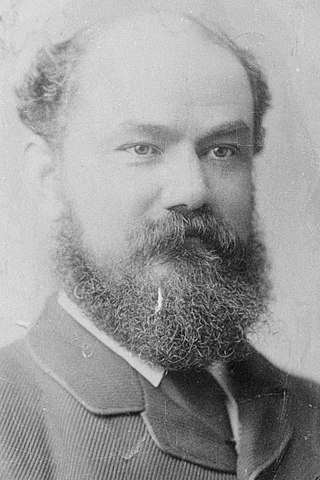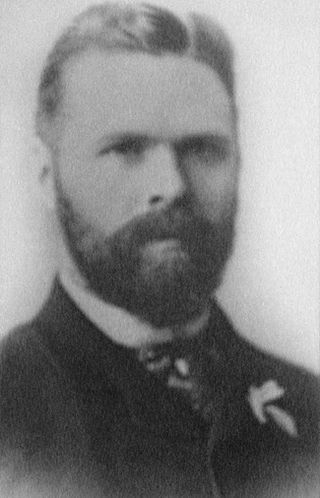| | ||||||||||||||||
| ||||||||||||||||
| Turnout | 1,663 | |||||||||||||||
|---|---|---|---|---|---|---|---|---|---|---|---|---|---|---|---|---|
| ||||||||||||||||
| ||||||||||||||||
The 1894 Wellington City mayoral election was part of the New Zealand local elections held that same year. The polling was conducted using the standard first-past-the-post electoral method.
| | ||||||||||||||||
| ||||||||||||||||
| Turnout | 1,663 | |||||||||||||||
|---|---|---|---|---|---|---|---|---|---|---|---|---|---|---|---|---|
| ||||||||||||||||
| ||||||||||||||||
The 1894 Wellington City mayoral election was part of the New Zealand local elections held that same year. The polling was conducted using the standard first-past-the-post electoral method.
In 1894 the incumbent Mayor Alfred Brandon was defeated by Charles Luke, a member of the Wellington Hospital Board.
The following table gives the election results:
| Party | Candidate | Votes | % | ±% | |
|---|---|---|---|---|---|
| Independent | Charles Luke | 786 | 47.27 | ||
| Independent | Alfred Brandon | 676 | 40.65 | −25.94 | |
| Independent | Lionel Lewis Harris | 201 | 12.08 | ||
| Majority | 110 | 6.61 | |||
| Turnout | 1,663 | ||||

The Mayor of Wellington is the head of the municipal government of the City of Wellington. The mayor presides over the Wellington City Council. The mayor is directly elected using the Single Transferable Vote method of proportional representation. The current mayor is Tory Whanau, elected in October 2022 for a three-year-term.

Sir Charles Manley Luke was a New Zealand politician and company director. He served as mayor of Wellington in 1895. His brother, Sir John Luke, was later mayor of Wellington from 1913 to 1921.

George Allen was Mayor of Wellington, New Zealand, for three weeks in 1879.

The 1901 Wellington City mayoral election was part of the New Zealand local elections held that same year. In 1901, elections were held for the Mayor of Wellington plus other local government positions including twelve city councillors. John Aitken, the incumbent Mayor, was re-elected to office as Mayor of Wellington, beating Thomas Wilford. The polling was conducted using the standard first-past-the-post electoral method.

The 1913 Wellington City mayoral election was part of the New Zealand local elections held that same year. In 1913, elections were held for the Mayor of Wellington plus other local government positions including fifteen city councillors. David McLaren, the incumbent Mayor, was defeated by John Luke by a relatively narrow margin, becoming the new Mayor of Wellington. The polling was conducted using the standard first-past-the-post electoral method.
The 1915 Wellington City mayoral election was part of the New Zealand local elections held that same year. In 1915, elections were held for the Mayor of Wellington plus other local government positions including fifteen city councillors. John Luke, the incumbent Mayor, retained office tallying just ten votes fewer than he did two years earlier. The standard first-past-the-post electoral method was used to conduct polling.

The 1917 Wellington City mayoral election was part of the New Zealand local elections held that same year. In 1917, elections were held for the Mayor of Wellington plus other local government positions including fifteen city councillors, also elected biannually. The polling was conducted using the standard first-past-the-post electoral method.
The 1921 Wellington City mayoral election was part of the New Zealand local elections held that same year. In 1921, elections were held for the Mayor of Wellington plus other local government positions including fifteen city councillors. The polling was conducted using the standard first-past-the-post electoral method.

The 1935 Wellington City mayoral election was part of the New Zealand local elections held that same year. In 1935, elections were held for the Mayor of Wellington plus other local government positions including fifteen city councillors. The polling was conducted using the standard first-past-the-post electoral method.

The 1876 Wellington City mayoral election was part of the New Zealand local elections held that same year. William Hutchison, the incumbent Mayor sought re-election and retained office unopposed with no other candidates emerging.
The Wellington Citizens' Association, was a right-leaning local body electoral ticket in Wellington, New Zealand. It was formed in 1911 by merging the selection process of council candidates of several civic interest groups and business lobby groups. Its main ambitions were to continue to control the Wellington City Council, reduce local spending and deny left-leaning Labour Party candidates being elected.

The 1947 Wellington City mayoral election was part of the New Zealand local elections held that same year. In 1947, election were held for the Mayor of Wellington plus other local government positions including fifteen city councillors. The polling was conducted using the standard first-past-the-post electoral method.
The 1914 Wellington City mayoral by-election was part of the New Zealand local elections held that same year. The polling was conducted using the standard first-past-the-post electoral method.

The 1895 Wellington mayoral election was part of the New Zealand local elections held that same year. The polling was conducted using the standard first-past-the-post electoral method.

The 1879 Wellington mayoral election was part of the New Zealand local elections held that same year to decide who would take the office of Mayor of Wellington.

The 1881 Wellington City mayoral election was part of the New Zealand local elections held that same year to decide who would take the office of Mayor of Wellington.

The 1882 Wellington City mayoral election was part of the New Zealand local elections held that same year to decide who would take the office of Mayor of Wellington.

The 1883 Wellington City mayoral election was part of the New Zealand local elections held that same year to decide who would take the office of Mayor of Wellington.

The 1884 Wellington City mayoral election was part of the New Zealand local elections held that same year to decide who would take the office of Mayor of Wellington.

The 1885 Wellington City mayoral election was part of the New Zealand local elections held that same year to decide who would take the office of Mayor of Wellington.